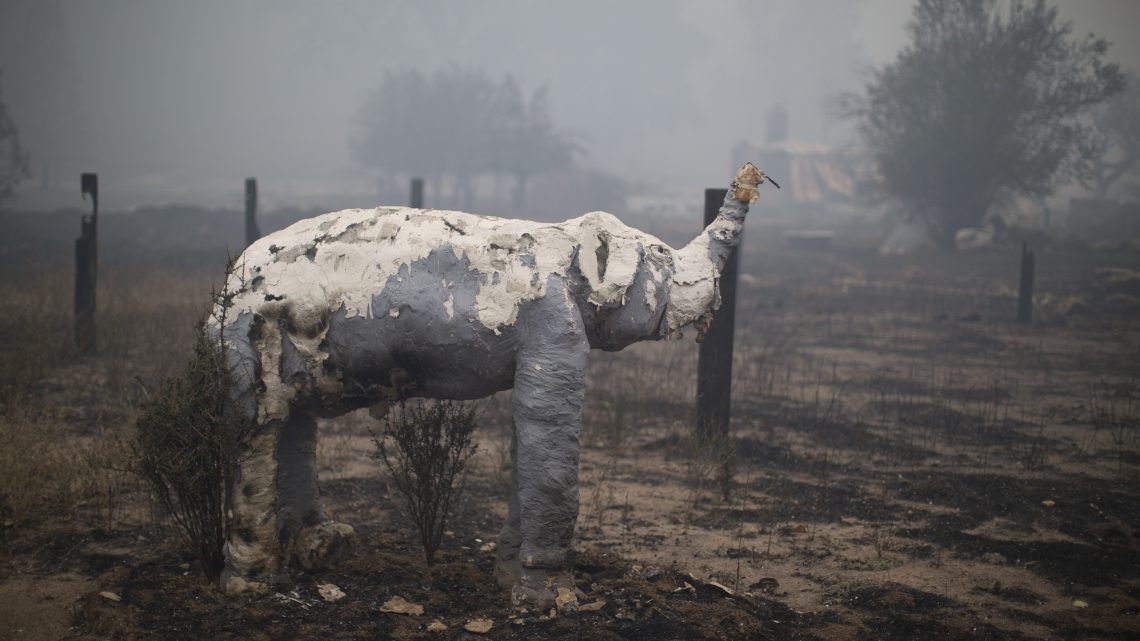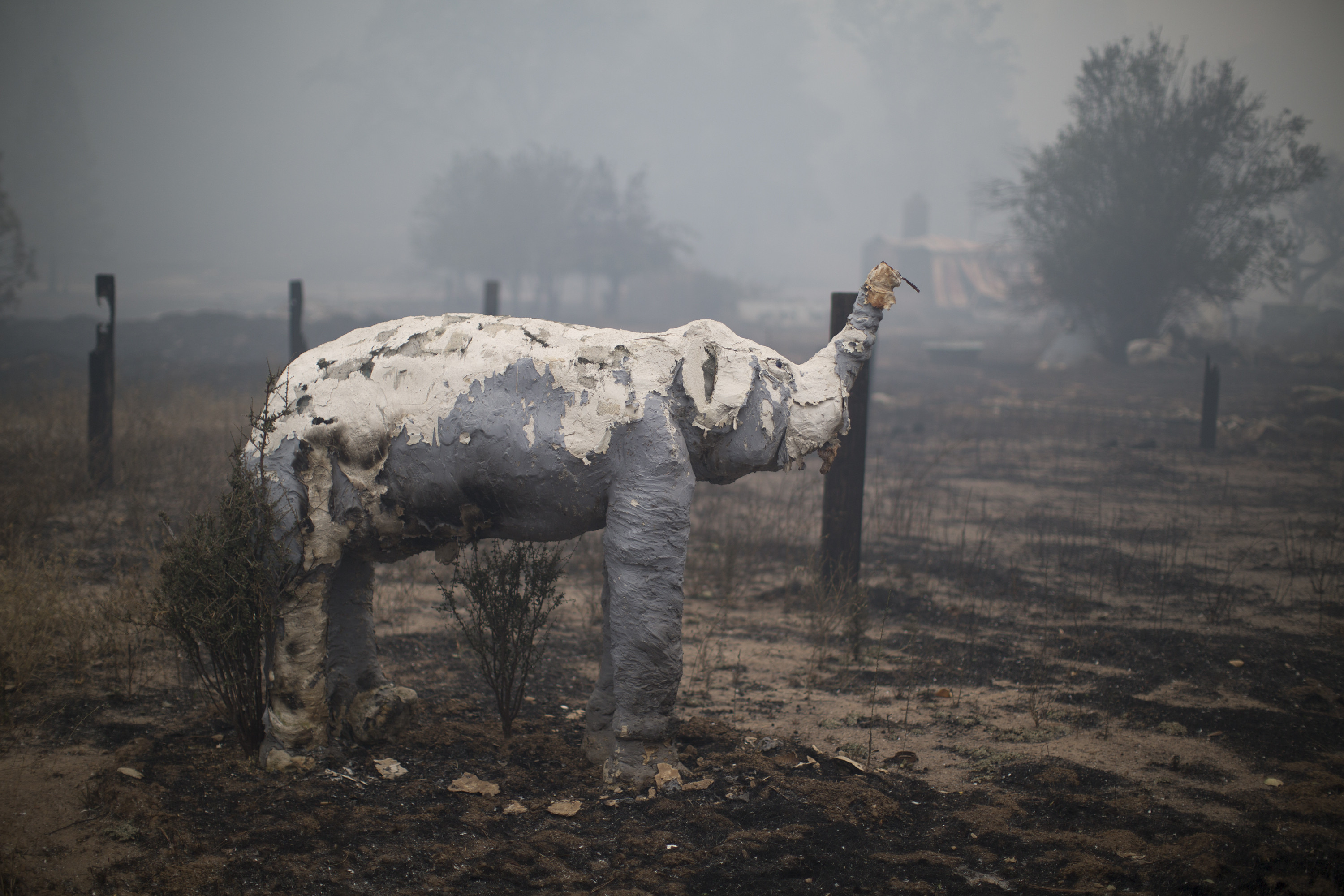
Weed Farmers Are Suing a California County After It Kicked Them Out
September 7, 2018Since early July, Jason Hauer has spent approximately seven hours commuting to and from San Francisco five days a week. The 40-year-old cannabis grower claims he was forced to find a job 124 miles away from his home in California’s rural Calaveras County after local politicians voted in January to ban commercial marijuana cultivation just two years after attempting to regulate it.
"I am doing the same thing I would be doing in Calaveras, working with a cultivator in San Francisco and providing assistance with their state and local applications," Hauer told me. "I am enriching somebody else when I could have been easily doing this in my hometown: providing jobs, economic activity, and a little profit for my family. But I stopped investing in my farm long before the deadline.”
The decision by the Calaveras County Board of Supervisors early this year to ban grow operations in the area—20 months after granting temporary licenses to medical marijuana grows—has upset local pot cultivators who feel like the rug was pulled out from under them. Crystal Keesey and Andrew Greer, a couple who operated another defunct Calaveras cannabis farm, claim they invested $500,000 of their life savings to set up the infrastructure and meet the county’s regulatory requirements in order to have a legal marijuana business. “It was like a dream come true,” Keesey said during a phone interview. “When the board flipped, it was curtains for everyone growing in Calaveras. The ban annihilated our investment and an entire industry.”
The cannabis farmers are challenging the decision in court through the Calaveras Cannabis Legal Defense Fund, established by Hauser, which filed a lawsuit along with two cannabis farmers in May to overturn the ban. Their request for a temporary injunction was denied, but the plaintiffs appealed the ruling. In early August, Keesey, Greer, and another former Calaveras cannabis farmer filed a class action lawsuit in California Superior Court demanding the county refund a combined $16.3 million in taxes and fees collected from cannabis farms. The complaint is pending and a hearing has been scheduled for December 5.
“The whole industry is fraught with difficulty unless you have big bucks and deep pockets.”
–Crystal Keesey
The acceptance and subsequent rejection these greenthumb entrepreneurs experienced in Calaveras exposes the regulatory obstacles facing mom-and-pop cannabis growers in the evolving legal and regulated marijuana market in California, which requires businesses to be licensed by the state as well as the local jurisdiction in which they operate. And while the threat of incarceration is no longer their biggest concern, cannabis growers are finding out that anti-marijuana opposition can still derail their ambitions of building a legal enterprise.
“There is very narrow pathway for small craft cannabis businesses to thread the needle of all these regulations without funding,” Keesey said. “The whole industry is fraught with difficulty unless you have big bucks and deep pockets.”
After launching their cannabis company Golden State Herb in 2015, Greer and Keesey believed they had found the perfect location in Calaveras, she said.
Founded in 1849 as one the state’s original 27 counties, Calaveras evolved from one of the Sierra Foothill’s most prosperous gold districts into a small cattle ranch community with a total population of 45,000, according to Jack Garamendi, one of five county supervisors, who says his district is home to 80 percent of the county's legal and illicit cannabis growers.
“Pot has been grown in Calaveras since I have been alive, mostly in the backwoods,” Garamendi said. “Occasionally, there would be cartels or gangbangers, but for the most part, we live and let live.”
For decades, illegal cannabis farms flourished behind all the brush and trees until a catastrophic wildfire roared through 71,000 acres in Calaveras and neighboring Amador County in September 2015. “Seven hundred homes were destroyed,” Garamendi said. “And when there is no more shrubbery you find out who is really growing pot.”
The natural disaster also made land very cheap in Calaveras, luring scores of new cannabis growers to the county looking to produce medical marijuana, Garamendi said.
“It was just scorched earth, but several internet sites were promoting Calaveras for having some of the best climate in the world for growing cannabis,” he said. “More than 1,000 growers moved into the area. We were overwhelmed.”

To rein in the farms, as well as to figure out which growers were serious about becoming legit, the Calaveras Board of Supervisors passed a measure in May 2016 allowing cannabis farms to obtain temporary permits for medical marijuana cultivation. “We had over 700 people pay the $5,000 fee to register with the county,” Garamendi said. “It was a bit chaotic and we made some mistakes. But in many ways, it worked.”
Hauer, Greer, and Keesey were among the first locals who put in for a permit. “We were thrilled because this was the first step toward having a legitimate business,” Keesey said. “The temporary program was pretty successful, although albeit unwieldy because 700 farms signed up when the county only expected 200.”
Garamendi said cannabis farmers were a boon to Calaveras. He pointed to a 2017 study by the University of the Pacific that concluded cannabis cultivation had an economic impact of $339 million in Calaveras in 2016, accounted for 15 percent of the county’s gross regional product, and employed 16 percent of the population.
“It’s hard to get young families to move back to rural America,” Garamendi said. “Our school enrollment went up and our population ceased to decline. We were moving in a positive direction.”
Except Calaveras’s older, conservative base had a hard time welcoming the newcomers growing pot, Garamendi said. “When young people in trucker hats and with tattoos show up at the grocery store, the reaction was, ‘Who are these people?’” he said.
And in the 2016 election, the conservative base made its feelings known at the ballot box. Roughly 53 percent of Calaveras voters rejected Proposition 64, the California statute that legalized cannabis for adult use, and 58 percent cast presidential ballots for Donald Trump. In contrast, Proposition 64 won the statewide vote by 57 percent, as did Hillary Clinton by nearly 62 percent.
More importantly, Calaveras voters rejected a local measure that would have established permanent cannabis regulations in the county, approved a commercial tax on pot farms with temporary permits, and replaced pro-regulation Supervisor Cliff Edson by voting in his anti-cannabis opponent Gary Tofanelli. The two other anti-cannabis supervisors, Clyde Clapp and Dennis Mills, were reelected.
Reached by phone, Tofanelli declined to comment. Clapp and Mills did not return calls or emails. Aside from saying that marijuana cultivation attracts a criminal element and gun violence, local anti-cannabis politicians have also sounded alarms about environmental pollution.
“We the counties in the foothills are the water supply for the rest of the state,” Mills said at an October 2017 meeting. “Los Angeles and the Bay Area need to be aware that what is being put in the water here may come out of their faucets. The liability of endangering or potentially polluting the watersheds of the state outweigh any short-term benefits.”
During the two-year period Calaveras allowed temporary cannabis farms, the local sheriff’s department was still busy raiding and dismantling illegal operations, as well as responding to unregistered grow sites where gunfire erupted.
There is some validity to Mills’s environmental damage argument. Last year, the California State Water Resources Control Board formed a team to pursue environmental crime investigations against cannabis growers who pollute waterways, a problem that has existed for decades, according to the San Jose Mercury News.
Hauer and Keecey said the anti-pot supervisors view all cannabis growers—even those like them who want to operate in a legal, regulated environment—as criminals. “It is so unnecessary and ridiculous,” Hauer said. “All the things they talk about: guns, crime, and safety have nothing to do with me. I get along with all my neighbors. I have potlucks with them.”
Keecey said she and Greer grow organic marijuana and are environmentally conscious. “We grow without harmful pesticides and crazy nutrients, and have grown quality product for years,” she said. “We figured we should be OK.”
“The Calaveras cannabis industry is disillusioned, broke, and angry.”
–Jason Hauer
After more than a year of failing to reach a compromise with the cannabis farms, the new majority succeeded in passing an ordinance on January 10 that banned commercial marijuana cultivation outright and gave temporary permit holders six months to cease operations. By then, Calaveras had collected $3.7 million in registration fees and raked in an additional $10 million since the cultivation tax went into effect, Garamendi said.
“It was like we were building an airplane while in flight and then just stopped,” he added. “If you decide not to finish the plane, then it is going to crash.”
In addition to dismantling his farm, Hauer said he tabled plans for a side consulting businesses to assist other cannabis growers to cut through the Calaveras County red tape. “I had an office space with a conference room ready to sign up over 500 local businesses that needed help with corporate formation, human resources, and basic legal help,” Hauer said. “Because of the ban, I had to vacate the office space.”
By April, he was traveling to the Bay Area looking for a job. “The Calaveras cannabis industry is disillusioned, broke, and angry,” Hauer said. “I have friends who are being forced to work on the pipeline in North Dakota.”
Greer and Keesey had better luck. In February, they were able to relocate and set up a cultivation facility in Shasta Lake, a city in Shasta County 254 miles north of Calaveras. “They decided to embrace the cannabis industry,” Keesey said. “It has been a wonderful experience.”
Ultimately, Hauer said he and other cannabis farmers want to return to Calaveras. “Our industry wants to go to work,” Hauer said. “Right now, we are all in survival mode, trying to feed our families. All we have time for is driving to San Francisco and working for somebody else.”
Sign up for our newsletter to get the best of VICE delivered to your inbox daily.
Follow Francisco Alvarado on Twitter.


